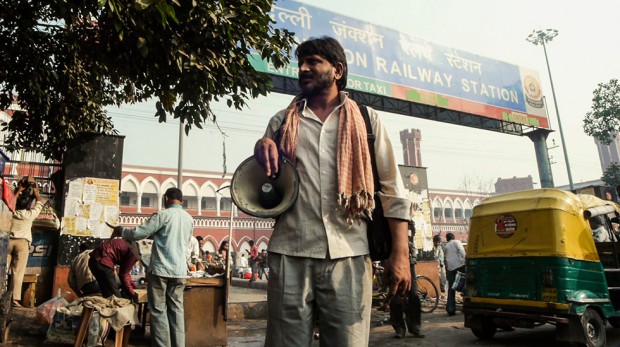
With his 2007 debut feature, Amal, India-Canadian filmmaker Richie Mehta demonstrated a strong narrative voice and a telling eye for cultural detail. Then he disappeared from our screens for a number of years before returning with another India-set drama, Siddharth.
If nothing else, the last several years of Richie Mehta’s life go some way towards demonstrating the twisting, often frustrating path a filmmaker’s career can take.
“After I finished Amal,” he recalls, “which was about 2007 in fact, I travelled for about a year with it just to get it out and I started working on my next project, I was writing things. And then I got hired by Disney in 2009 to do a film, which would have been their first live action film in India. So I started working on that extensively, rewriting and prepping to direct it in India and then two weeks before we were due to shoot the film it got cancelled. So that was a bit of a setback and when that happened, I happened to meet the rickshaw driver who was the inspiration for Siddharth.
“Also in that time, I started working on an old script of mine, I’ll Follow You Down, which is a science fiction script that I started writing years ago. So I developed both films and they both wound up finding financing at the same time. And I shot back to back; I shot Siddharth and I shot I’ll Follow You Down and then I edited them together, so they were concurrent.”
I’ll Follow You Down has yet to find distribution in Australia, but audiences can now see Siddharth, the story of a poverty-stricken zipper repairman who searches for his missing son, who may have been abducted. The seed of the story was sown by a chance encounter Mehta had in India.
“I was basically finishing up my trip on that Disney project and I was in a rickshaw and the fellow asked me for help in finding Dongri. And I didn’t know what he meant so I asked, ‘What is Dongri?’ And he went on to explain that he sent his 12 year-old boy to this other town to work and he never saw him again. He heard that he had been kidnapped and taken to a place called Dongri and he doesn’t know where that is. He didn’t have a photograph, he didn’t know how to spell the boy’s name and this had happened a year ago. So I did a Google search and I found Dongri in five seconds, but I was the first person who could help him.”
If the actual story has a happy ending, Mahta doesn’t know it. “I never saw him again,” he tells us. “He gave me a phone number which turned out to be a wrong number, so when I wanted to contact him I couldn’t. I sat on it for about a year and the thing just started boiling inside me. I realised that this guy was never going to give up. And because of the economic conditions, he had to go to work – he didn’t have a grieving period. I’m born in Toronto – I come from a world, similar to yours, where if these kinds of things happen, you have a reason to check out, to no longer be a functioning member of society, and he didn’t have that. And I thought, ‘My God, if this guy can get through this emotionally, then I have something to learn from him’.”
TRAVIS JOHNSON